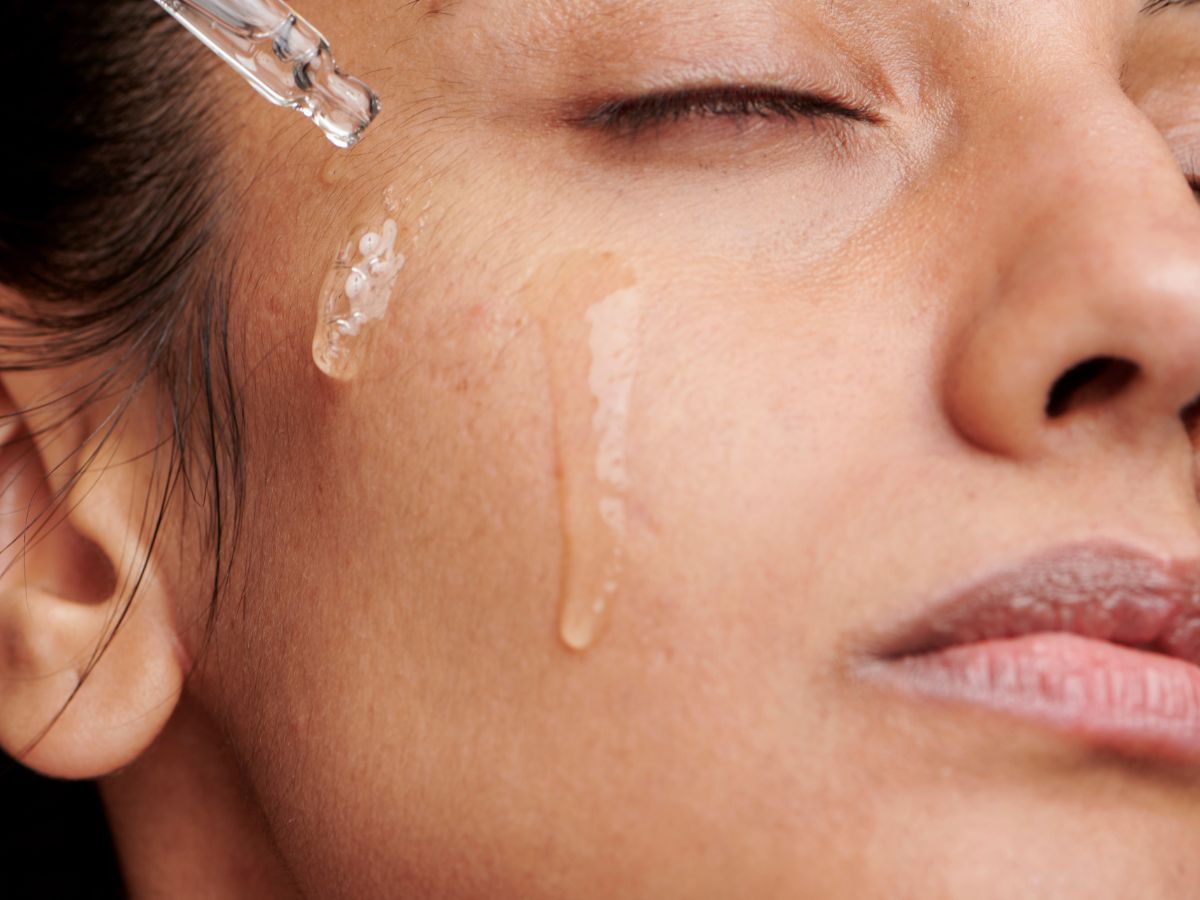
-
Posted By drruby.Sachdev@gmail.com
-
-
Comments 0
Ceramides are essential for maintaining healthy skin. These naturally occurring lipids are found in high concentrations within cell membranes and play a crucial role in the skin’s barrier function. As skincare science advances, ceramides have become a popular ingredient in various skincare products, particularly moisturizers. This blog will guide you through everything you need to know about ceramides, including their benefits, types, uses, and more.
What Is Ceramide?
Ceramides are lipid molecules found in the outermost layer of the skin, known as the stratum corneum. They constitute about 50% of the skin’s composition and are critical for maintaining the skin’s barrier and retaining moisture. Ceramides are often included in moisturizers to help restore the skin’s natural barrier, making them a key ingredient in many skincare products.
Ceramides in moisturizer products are particularly beneficial for people with dry or sensitive skin, as they help to lock in moisture and protect against environmental aggressors. By replenishing the skin’s natural ceramide levels, these moisturizers can improve the skin’s overall health and appearance.
The Role of Ceramides in Skin Health
Ceramides play a vital role in maintaining skin health by:
- Forming a Protective Barrier: Ceramides help create a barrier that prevents moisture loss and protects the skin from external irritants and pollutants.
- Maintaining Hydration: By locking in moisture, ceramides keep the skin hydrated, plump, and smooth.
- Improving Skin Elasticity: Adequate ceramide levels help maintain skin elasticity and firmness.
- Supporting Skin Repair: Ceramides aid in the repair and regeneration of the skin, promoting a healthy and resilient complexion.
Types of Ceramides
There are several types of ceramides found in the skin, each with its unique function. The most common types used in skincare products include:
- Ceramide 1 (EOP): This type of ceramide is known for its role in the skin’s natural moisturizing factor (NMF).
- Ceramide 2 (NS): Essential for skin hydration and barrier function.
- Ceramide 3 (NP): Helps to reinforce the skin’s barrier and retain moisture.
- Ceramide 6-II (AP): Known for its exfoliating properties, which help to improve skin texture and smoothness.
- Ceramide 9 (EOS): Supports overall skin barrier function and hydration.
Ceramides in moisturizer formulations often contain a blend of these types to provide comprehensive benefits for the skin.
Benefits of Ceramides in Skincare
Ceramides offer numerous benefits for the skin, making them a valuable ingredient in many skincare products. Some of the key benefits include:
- Moisture Retention: Ceramides help to lock in moisture, preventing dryness and dehydration.
- Barrier Protection: By strengthening the skin’s natural barrier, ceramides protect against environmental damage and irritants.
- Reduced Sensitivity: Ceramide-rich products can help to soothe and calm sensitive skin, reducing redness and irritation.
- Anti-Aging Properties: Ceramides improve skin elasticity and firmness, helping to reduce the appearance of fine lines and wrinkles.
- Enhanced Skin Texture: Regular use of ceramide-infused products can lead to smoother, softer, and more supple skin.
Ceramides in moisturizer products are especially effective for addressing dry, flaky, or irritated skin, providing long-lasting hydration and protection.
How to Incorporate Ceramides into Your Skincare Routine
Incorporating ceramides into your skincare routine can be done in several ways:
- Choose Ceramide-Rich Products: Look for moisturizers, serums, and cleansers that contain ceramides as a key ingredient.
- Layering: Apply ceramide-infused products after cleansing and toning but before heavier creams or oils.
- Consistency: Use ceramide products regularly to maintain optimal skin health and barrier function.
- Combination with Other Ingredients: Ceramides work well with other hydrating ingredients like hyaluronic acid and glycerin for enhanced benefits.
Using ceramides in moisturizer products daily can help maintain a healthy and hydrated complexion.
Ceramides in Food and Supplements
In addition to topical applications, ceramides can also be found in certain foods and supplements. Consuming these can help boost your skin’s natural ceramide levels:
Foods Rich in Ceramides: Soybeans, wheat germ, rice, and dairy products contain natural ceramides.
Supplements: Oral ceramide supplements are available and can help improve skin hydration and barrier function from within.
Related Article: Hydra Facial vs IPL: Which is Best for Your Skin?
Using Ceramides: What to Look for in a Skin-Care Product
When selecting skincare products containing ceramides, consider the following:
- Ingredient List: Ensure ceramides are listed among the top ingredients.
- Product Type: Moisturizers, serums, and cleansers are ideal for delivering ceramides to the skin.
- Formulation: Look for products that combine ceramides with other hydrating and barrier-supporting ingredients.
Brand Reputation: Choose products from reputable brands known for their high-quality formulations.
Potential Side Effects of Ceramides
Ceramides are generally well-tolerated by most skin types, but potential side effects may include:
- Allergic Reactions: Although rare, some individuals may experience allergic reactions to ceramide-containing products.
- Skin Irritation: In very rare cases, ceramides may cause irritation, especially if combined with other potent active ingredients.
It’s always advisable to perform a patch test before introducing new skincare products to your routine.
What’s the Best Way to Boost Your Ceramide Levels?
To boost your ceramide levels effectively:
- Use Ceramide-Infused Skincare: Incorporate ceramide-rich products into your daily routine.
- Maintain a Healthy Diet: Eat foods rich in natural ceramides and consider taking supplements if necessary.
- Avoid Over-Cleansing: Over-cleansing can strip the skin of its natural oils and ceramides, so use gentle cleansers.
Conclusion
Ceramides are a powerhouse ingredient in skincare, essential for maintaining a healthy and hydrated complexion. By incorporating ceramide-infused products into your routine, you can enjoy numerous benefits, including improved moisture retention, barrier protection, and overall skin health. Whether through topical applications, dietary choices, or supplements, boosting your ceramide levels can lead to healthier, more resilient skin.
Frequently Asked Questions
Avoid using ceramides with potent exfoliants or retinoids simultaneously, as these can potentially disrupt the skin barrier when overused.
While ceramides are not specifically an acne treatment, they can help maintain a healthy skin barrier, which may reduce inflammation and support overall skin health.
Ceramides are generally compatible with most skincare ingredients, including hyaluronic acid, peptides, and niacinamide.
You can use ceramide-containing products daily, both in the morning and evening, to maintain optimal skin hydration and barrier function.
Yes, ceramides are safe to use during pregnancy and can help manage common skin concerns such as dryness and sensitivity.
By integrating ceramides into your skincare regimen, you can ensure your skin remains healthy, hydrated, and resilient against environmental stressors.
Recent Posts
- Bangalore Monsoon Skin SOS: Dr Ruby Sachdev’s Tips to Beat Seasonal Breakouts
- Stretch Marks Demystified: Only These Treatments Really Fade Them—Here’s Why
- Dry Scalp vs. Dandruff? Spot the Difference & End the Itch for Good
- 🧴 Pollution + UV in Bangalore? Why Sunscreen Alone Isn’t Enough—Your Complete Daily Skin Defense
- Glass Skin Treatment in Bangalore: Is It Worth the Hype?




